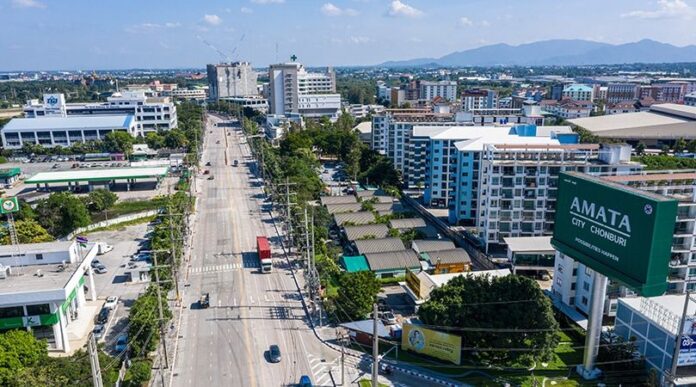Thai developer Amata is launching a major industrial park in Laos to attract manufacturers relocating from China due to U.S.-China tensions and economic uncertainties, says chairman Vikrom Kromadit.
Major Industrial Park in Laos
Thai developer Amata is establishing a significant industrial park in Laos to attract manufacturers relocating from China due to U.S.-China tensions and uncertainties in China’s economy. Amata, known for its industrial parks in Thailand and Vietnam, is aiming to draw these manufacturers to Laos, according to the founder and Chairman, Vikrom Kromadit.
Manufacturer Relocation Strategy
Kromadit highlighted that the upcoming U.S. presidential election and economic uncertainties in China might push more Chinese companies to expand abroad. In an interview with Nikkei Asia, he emphasized overseas expansion as a crucial lifeline for these companies, indicating a shift in regional manufacturing dynamics.
Source: Thailand’s Amata eyes Laos as a hub for Chinese manufacturing exodus
Thailand’s Amata Corporation, a leading industrial estate developer, is strategically targeting Laos as a prime location for Chinese manufacturing relocation. This move aims to tap into the ongoing shifts in global supply chains, driven by rising labor costs in China and escalating trade tensions between China and the United States. Amata’s decision to focus on Laos is driven by several key factors, including favorable economic policies, competitive labor costs, and geographic proximity to both China and Thailand.
Laos, a landlocked country with a stable political environment, presents a unique opportunity for Chinese manufacturers seeking cost-effective alternatives. The Lao government’s proactive stance on attracting foreign investment, coupled with its participation in regional trade agreements such as ASEAN, further enhances its appeal. Additionally, Laos offers relatively low operating costs, making it an attractive destination for manufacturers looking to optimize their production expenses.
Amata’s planned development in Laos signifies more than just an expansion of its industrial estate footprint. It reflects a broader trend of regional economic collaboration, as countries in Southeast Asia seek to capitalize on the shifting dynamics of global trade. The establishment of industrial estates in Laos is expected to create a ripple effect, spurring job creation, technology transfer, and infrastructure development within the country.
Moreover, the relocation of Chinese manufacturing to Laos aligns with China’s “Belt and Road Initiative,” aimed at enhancing regional connectivity and trade routes. By positioning Laos as a hub for manufacturing, Amata is poised to facilitate smoother logistics and supply chain management for relocated Chinese companies. This strategic positioning is expected to foster stronger economic ties between China, Laos, and Thailand, contributing to the overall growth of the region.
In summary, Amata Corporation’s focus on developing industrial estates in Laos underscores the country’s burgeoning role as a key player in the evolving landscape of global manufacturing. This initiative not only bolsters Laos’ economic prospects but also strengthens the interconnectedness of Southeast Asia’s industrial and trade networks.
Source : Thailand’s Amata Targets Laos as a Hub for Chinese Manufacturing Relocation


